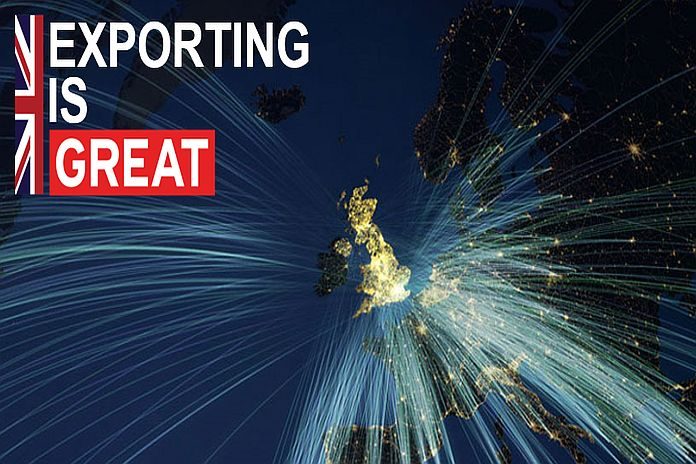LONDON, England – The UK, on March 2, published its negotiating objectives for a free trade agreement with the United States, with talks expected to begin this month. Manufacturers of ceramics, cars and food and drink, and professional services including architects and lawyers are among the British industries expected to be the biggest winners from tariff-free access to the US market.
The agreement will deliver for the whole United Kingdom, with Scotland, the North East, and the Midlands forecast to benefit most from removing barriers to trade with the US.
Government analysis published today shows that the UK economy will benefit from a £3.4 billion boost, as the trade deal will increase transatlantic trade flows by £15.3 billion. The negotiating objectives set out that any future agreement must protect our NHS and uphold our high standards on food safety and animal welfare.
The agreement will also include a chapter on digital trade, to maximise opportunities for businesses to trade digitally across the Atlantic. On the UK side, talks will be overseen by Crawford Falconer, DIT’s chief trade negotiation adviser, formerly New Zealand’s chief negotiator and ambassador to the World Trade Organisation (WTO).
He will be supported by a team of negotiators, drawing on expertise from across government and the private sector. Negotiating rounds will alternate between the UK and the US.
The government will set out our negotiating objectives for Australia, Japan, and New Zealand shortly, with the aim of having 80 percent of total UK external trade covered by free trade agreements by 2022.
The prime minister, Boris Johnson said: “We have the best negotiators in the business and of course, we’re going to drive a hard bargain to boost British industry. Trading Scottish smoked salmon for Stetson hats, we will deliver lower prices and more choices for our shoppers. Most importantly, this transatlantic trade deal will reflect the unique closeness of our two great nations.”
International Trade Secretary, Liz Truss said: “Striking ambitious free trade agreements with our partners around the world is one of the key opportunities of Britain becoming an independent trading nation once again. This deal with our biggest single trading partner will cut red tape for our small businesses, cut tariffs for our great products from dairy to cars and increase growth in all four nations.”
Mike Cherry, national chair of the federation of small businesses, said: “FSB research shows that the United States is the number one individual country that UK small businesses are looking to as they consider where to trade, with 46 percent of UK SME exporters prioritising the US market over the next three years. This shows the sheer scale of ambition that will be unleashed if we can take full advantage of the opportunities a Free Trade Agreement (FTA) will open up.
“As the FTA moves forward, we are working with the Department for International Trade to make sure Small and mid-size enterprises (SME) are front of mind. The success of the UK economy rests on inspiring more small businesses to go global, and trade around the world.”
The UK’s overall negotiating objectives are to:
- Agree with an ambitious and comprehensive free trade agreement with the United States that strengthens the economic relationship with our largest bilateral trading partner, promoting increased goods and services trade and greater cross-border investment.
- Increase UK GDP by opening up opportunities for British businesses and investors, and facilitating greater choice and lower prices for British producers and consumers.
- Rigorously protect the UK’s freedom to provide public services, such as the National Health Service, in the national interest. The NHS is not for sale and the Government is committed to the guiding principles of the NHS – that it is universal and free at the point of use.
- Throughout the terms of the agreement, ensure high standards and protections for British consumers and workers, and build on our existing international obligations. This will include upholding the UK’s high domestic standards on food safety and animal welfare.
- Futureproof the agreement in anticipation of rapid technological developments.





